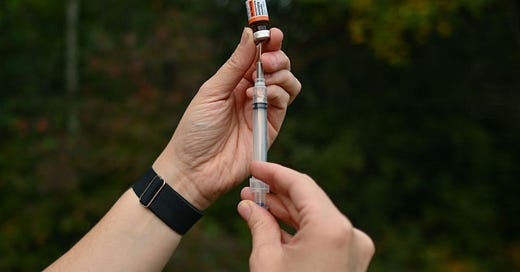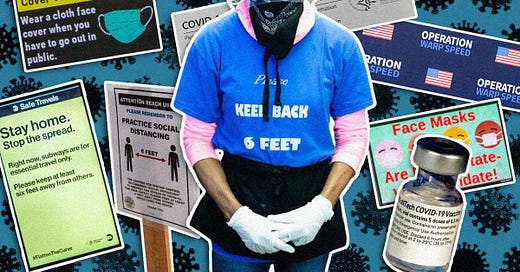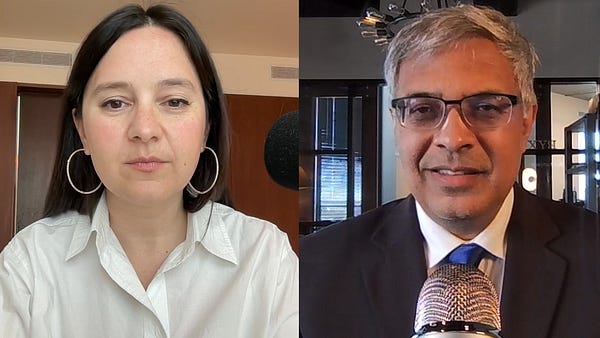
This article is taken from The Free Press’s daily newsletter. To get the best of the news delivered to your inbox every morning, sign up here:
The mighty Rupa Subramanya has covered a lot of big north-of-the-border stories for The Free Press, including the furor over the truckers’ protest and Canada’s rapidly expanding euthanasia industry.
And so when we read about a scheme in British Columbia that provides minors access to fentanyl without parental consent—yes! For real!—we asked Rupa to explain what was going on.
Here’s her report:
Since 2020, British Columbia has made a point of providing a “safer supply” of fentanyl to addicts—and, more recently, it has loosened the rules, making it easier for doctors and nurses to prescribe the highly addictive drug to even more people.
That includes minors, who do not require a parent’s permission to get a prescription.
The provincial government did not publicize this change—which took effect in August 2023—and most Canadian media has steered clear of the story.
That could be because many Canadian parents are worried about their children getting hooked, or overdosing, on fentanyl. Drug overdose is now the leading cause of death among 10- to 18-year-olds in British Columbia.
In April of last year, a five-year-old girl in Nanaimo, British Columbia, just west of Vancouver, accidentally stumbled on a packet of fentanyl at school. Thankfully, her mother found the drugs before anything happened.
British Columbia’s fentanyl policy is in keeping with other Canadian innovations such as medical assistance in dying (MAID), Canada’s euthanasia program that, come March, will be available to those suffering from psychological disorders like anorexia and may be extended to “mature minors” in the future. (I wrote about MAID for The Free Press in 2022.)
The new fentanyl policy also dovetails with a British Columbia pilot program launched in January 2023 that legalized small amounts of drugs such as heroin, meth, crack cocaine, and ecstasy.
With a population of roughly five million—a little less than one-eighth of Canada’s population—British Columbia has accounted for about a third of all 32,000 drug-related deaths in Canada since 2016.
Julian Somers, a clinical psychologist at Simon Fraser University, just outside Vancouver, told me that the new British Columbia fentanyl policy—distributing a highly addictive drug at pharmacies and clinics—has never been tried anywhere else.
“Rather than taking steps to actively reduce risks, which we’re clearly not doing—it’s not even discussed—our current policies have the appearance of actively contributing to increased risk,” Somers said.
Rupa Subramanya is a Canadian-based writer for The Free Press. Follow her on X, formerly Twitter, @rupasubramanya.
And to support our work, become a Free Press subscriber today:














Nice little dystopia you've got there.
Elsewhere in the news - "Toronto Bans Tobogganing on 45 Hills, Puts Up Warning Signs."
It seems Canadians have a strange understanding of risk.